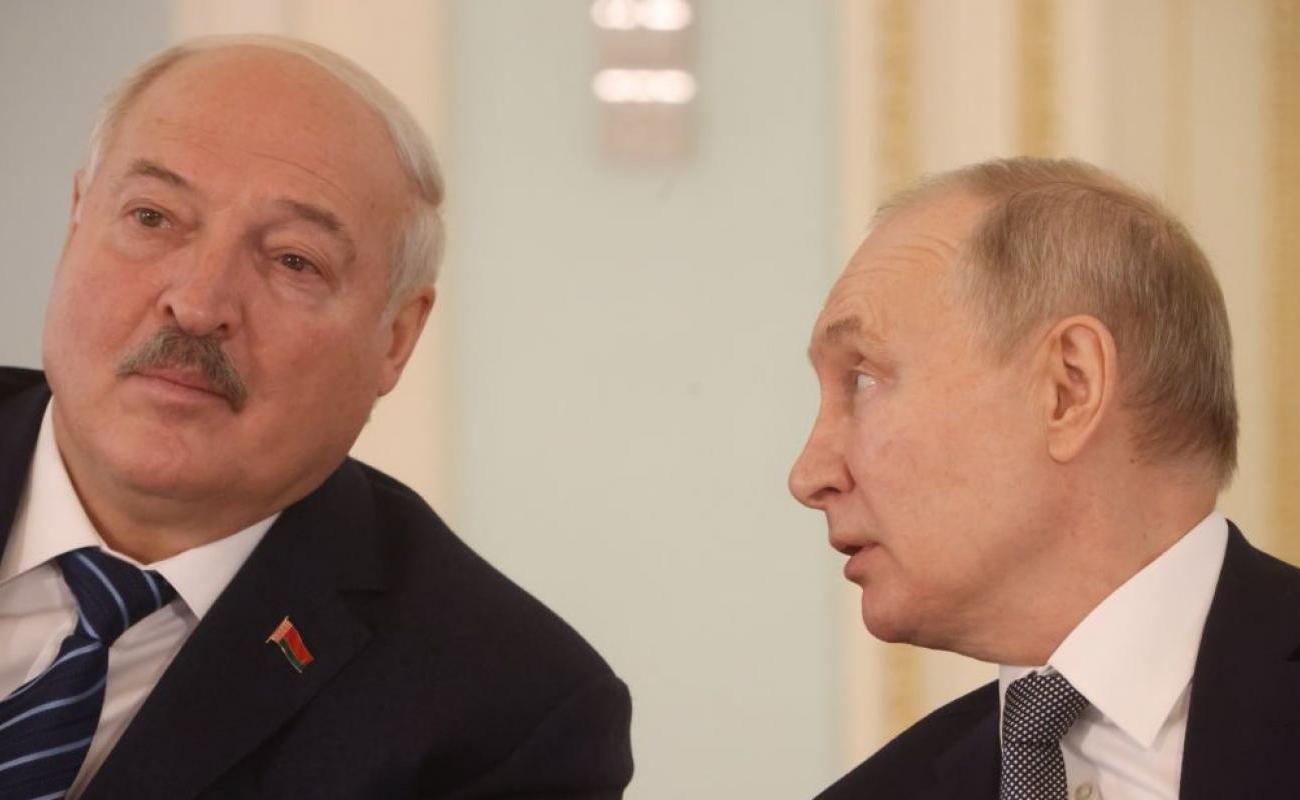Russia’s Putin looks to Belarus to dig him out of war-time potato shortage

“It turns out that we don’t have enough,” the Russian leader said this week of national potato stocks.
Russia's war-hungry President Vladimir Putin has a potato-shaped problem that not even close ally Belarus can help him out with anymore.
The result of the Kremlin's war-time strategy to slash food imports from what it calls “unfriendly” Western countries has triggered a crisis in the supply of the starchy kitchen staple, causing a spike in supermarket prices and a rethink on agri trade policy in Belarus.
"It turns out that we don't have enough potatoes,” Putin said on television this week.
Moscow has been scrambling for months to source more potato stocks, depleting even the reserves of its long-time ally, Belarus. During the same broadcast, Putin recounted that when he approached Belarusian President Alexander Lukashenko for help, he was told supplies had already “been sold to Russia.”
In 2024, potato production dropped by 14% in Russia and by 23% in Belarus compared to the previous year due to poor growing conditions. As a result, Russian consumers saw the price of this key culinary staple jump by as much as 92%.
Unfavourable weather conditions isn't the only culprit.
The shortage is also partly driven by Moscow’s January 2024 decision to restrict seed imports from countries on its “unfriendly” list — which includes all EU member states - according to Alex Kokcharov, a geopolitical analyst for Russia and Eastern Europe at Bloomberg Economics.
"This is likely linked to [a] policy of import substitution,” Kokcharov said, adding that restrictive quotas on potatoes “effectively disrupted the 2024 season.”
The quest for self-sufficiency has led Moscow to reduce its seed potato imports by a whooping 93% in a single year and move away from reliance on the EU - once a top supplier before the invasion of Ukraine.
Already in 2023, Russia banned the import of spud planting material from the Netherlands, which had been a key provider.
Spillover to Belarus
Faced with a current potato shortage, and the potential of turning local Vareniki dumplings into pricey luxury cuisine, Moscow increased duty-free imports of the carb from “friendly countries” like Belarus and Egypt last November.
But now Minsk’s own cellars are running dry - and Lukashenko’s patience is wearing thin.
The long-time Belarusian president has been lashing out at his senior officials over the country’s dwindling potato reserves.
“I warned you last year how [potatoes] should be stored (...) God forbid I drive by [a cellar] and it’s not filled to the ceiling”, he screamed at a government meeting in February, BNE news reported.
He also accused Belarusian farmers of not doing their bit. “I planted these vegetables in a greenhouse to see if it was possible. It turns out it is, so why are you not doing it?”, the aged leader said.
Still, experts say the tight policies of price controls in the country are not helping. “Belarusian producers prefer exporting to Russia, where they can decide on prices”, said Kokcharov.
Despite his country’s potato shortage, Lukashenko seems determined not to let down Putin, while making a little cash out of it too. “We must help our Russian brothers. After all, it is not a charity. Prices are serious, and money could be earned”, Belarusian state media quoted him as saying on Wednesday.
But the political opposition is accusing Lukashenko of crossing the line. “Belarusians are facing a shortage of potatoes - our national staple - and yet, the regime keeps sending huge amounts to Russia”, exiled leader Sviatlana Tsikhanouskaya told Euractiv from Vilnius, Lithuania, where she has lived since 2020.
“This isn’t just about potatoes. It’s about a system that puts politics and loyalty to the Kremlin above the basic needs of its own citizens”, she added.
Tsikhanouskaya is outraged but not surprised. “Lukashenko always tries to squeeze as much as possible out of trade with Russia, even if it means ordinary people in Belarus suffer”.
A wink at the West
Now, Minsk is turning westward to restock.
On Tuesday, Minsk lifted an embargo on imports of potatoes and other food staples from the so-called “unfriendly” countries, including EU countries - in a move it called a gesture of “good neighbourliness." That's as Brussels prepares to hike tariffs on agri-food imports coming from both Russia and Belarus.
“Once again Belarus is demonstrating its openness, peace-loving nature”, read the statement, quoted by Interfax.
The EU’s tariff hike is expected to come into force in July, following formal approval by the Council.
